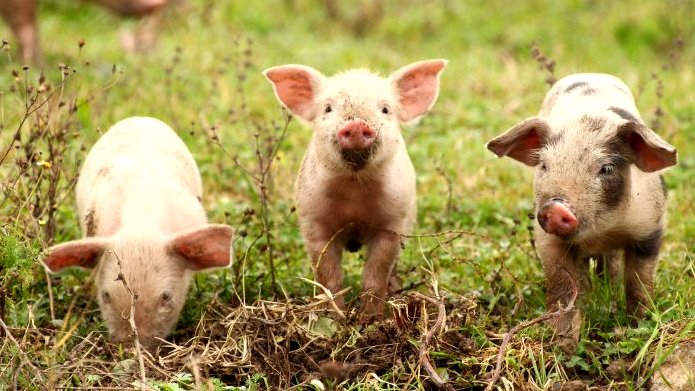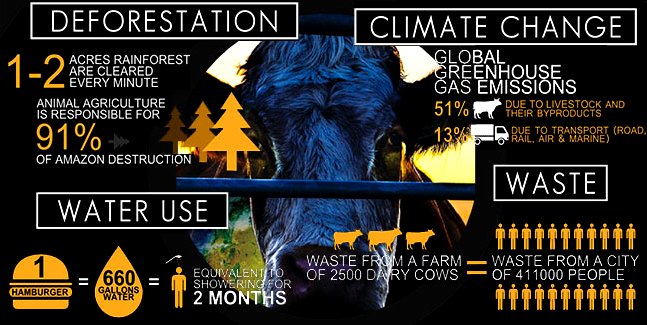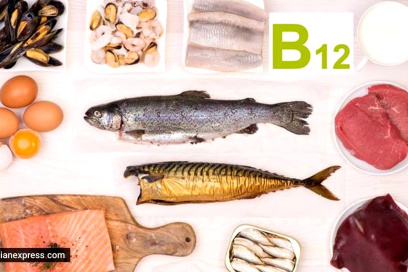The question of whether humans were always intended to consume animals has ignited fierce arguments that have grown more heated over the decades, creating an intricate web of discourse and debate. This complex and controversial debate addresses numerous aspects that greatly impede daily living. As such, many individuals look to religious texts for guidance in this matter while others analyze its health impacts, ethical considerations and environmental influences. No matter your ideology or standpoint on religion or politics, it's vitally important to appreciate and understand all perspectives surrounding this subject matter.
Undoubtedly, much of the dialogue on Genesis 1:26-30 and Genesis 9:3-4 relies heavily on these passages, and with various religious factions interpreting these texts differently it has only further complicated matters. Veganism has recently experienced tremendous momentum among religious demographics. The vegan lifestyle involves advocating the consumption of plants and cruelty-free products and offers tangible advantages, including better health, environmental preservation and animal welfare improvement. We will explore various aspects of veganism here - religious interpretations, health benefits of plant-based nutrition, ethical treatment of animals and environmental repercussions associated with animal agriculture.
I. The Biblical Interpretation
Questioning the Divine Mandate to Consume Animals
Interpreting religious texts can lead to confusion when trying to determine whether humans are divinely mandated by God to consume animals. Some religious exegetes interpret Genesis 1:26-30 as providing humans with the right to exploit animals for any reason, including food consumption. This passage from scripture mentions humans' "dominion over all of God's creatures that move across His creation" and "every living thing that moves across this Earth." (Gen 1: 26-30).
However, this interpretation remains unclear according to Genesis 9:3-4. The meaning of "dominion" can vary depending on individual interpretation - is it unlimited power or prudent stewardship? As such, religious texts offer a subjective and nuanced perspective on animal rights and consumption.
Dietary Guidelines According to Religion
Various religions prescribe different dietary guidelines. Hindus and Buddhists are well-known for their belief in nonviolence and thus forgo meat consumption. Muslims and Jews follow strict dietary laws where only certain "clean" animals can be consumed after undergoing strict slaughter procedures.
Recognizing the Importance of Religious Text Interpretation
Recognizing the importance of subjectivity and subtleties when interpreting religious texts is critical where food and dietary habits intersect. Personal beliefs and values may create dissonance among believers, leading to conflicts and miscommunications. While religious texts can provide guidance, approaching spirituality on an individual basis based on personal convictions and ideals is ultimately needed.
Ethical and Moral Principles in Animal Rights and Consumption
Finally, ethical and moral principles play a crucial role in animal rights and consumption. This section will explore their impact on contemporary practices of factory farming and the ethical treatment of animals.
II. Ethical Animal Treatment
Ethics are of central importance in animal rights movements; ethics and morals play a pivotal role in deciding how livestock animals should be treated. Traditional ethics of animal use have been examined while new ethical theories have appeared as part of philosophy studies. Animal treatment ethics stem from concerns surrounding pain and suffering capacity similar to that found among humans, creating ethical considerations surrounding consumption practices for livestock animals.
Modern Factory Farming
Modern factory farming raises serious ethical and animal welfare concerns due to industrialized methods of livestock raising that include tight living quarters, extreme stress and inhumane slaughtering methods. Factory farmed pigs may suffer physical and psychological duress while chickens may suffer painful bone deformities as a result of artificially accelerated growth rates in overcrowded and unnatural conditions resulting in unnaturally rapid development rates that lead to painful bone deformities, heart, lung, or liver failure resulting from artificially accelerated growth rates that create artificially accelerated growth rates caused by artificially accelerated growth rates artificially increased growth rates artificially increased growth rates in unnatural circumstances.
Factory farming presents an ethical conundrum in that economic gains take precedence over animal welfare and environmental considerations. On the other hand, vegans and plant-based advocates argue that meat consumption causes numerous environmental and animal welfare problems. Our consumer choices have an incredible effect on this industry, and selecting plant-based options as conscious consumers is crucial in supporting animal ethical treatment.
Adopting a Cruelty-Free Lifestyle
Ethics surrounding animal treatment in food production are often complex, so making individual decisions about them can be challenging. Here are some potential solutions:
Plant-Based Diet
Adopting a plant-based diet may help reduce the number of animals being raised for food production, and thus lessen the impact of factory farming on animal welfare and the environment. A plant-based diet can also improve human health.
Conscious Consumerism
As consumers, we have the power to support expanded plant-based options, and alternative and ethical farming practices. By supporting brands and companies that prioritize animal welfare and ethical farming practices, we can contribute to the growing movement of ethical consumption.
“Our task must be to free ourselves... by widening our circle of compassion to embrace all living creatures and the whole of nature and its beauty.” - Albert Einstein
III. Plant-Based Lifestyle
Adopting a plant-based lifestyle is an extraordinary and innovative step that involves eating only foods derived from plants - from vegetables and fruit, grains and legumes all the way through to nuts. As more individuals advocate for its benefits to both health and the environment, more are opting for this alternative diet option.
Animal products have long been blamed for harboring high amounts of saturated fats that are detrimental to one's health, leading to heart disease, stroke and obesity as major public health concerns in many nations. Plant-based diets provide more viable solutions for leading a healthy lifestyle.
Studies show that those who opt for plant-based living often report improved health and wellbeing. Recent research has demonstrated this with vegetarians having lower blood pressure, BMI and cholesterol levels than meat eaters compared with recent research studies conducted. Furthermore, many forward thinking athletes have found that plant-based lifestyles provide all of the nutrients necessary for peak performance in their respective sports - disproving myths about meat being necessary to build muscle strength.
Success stories of vegan athletes
Success stories of vegan athletes such as Lionel Messi, Venus Williams and Lewis Hamilton speak volumes. These iconic athletes have taken up veganism as a diet choice and credit their athletic accomplishments to plant-based eating habits that provide protein, iron and calcium while providing other vital life-giving nutrients essential to fuelling performance.
Benefits of Plant-Based Living
Alongside these personal and health advantages, plant-based lifestyles can also be seen as moral and ethical choices that reflect animal welfare principles while conserving the environment.
Animal agriculture industry depletes natural resources like water and land quickly while producing one kilogram of beef requires 34.5 times more water consumption compared to growing similar amount of vegetables.
By choosing to embrace plant-based living, even through slight diet modifications, an individual has the power to have an immense positive effect on animal welfare and environmental conservation - as well as their own health and overall wellbeing. In the next section we will investigate further into animal agriculture's environmental impact as well as explore how individual lifestyle choices can bring about transformational change.
IV. Environmental Impact of Animal Agriculture
Animal agriculture's impact on the environment has been subject to extensive analysis and study. Numerous studies have demonstrated an association between animal agriculture and environmental degradation as well as climate change.
Deforestation
Animal agriculture plays a devastating role in deforestation of world rainforests, which play a critical role in providing oxygen and carbon dioxide absorption. Deforestation often takes place due to creating new pasturelands or farm crops for pasture animals; burning of felled trees adds additional carbon dioxide levels into the environment while damaging forests leads to the extinction of animal species and loss of biodiversity.
Water Pollution
Animal agriculture poses another serious environmental threat by polluting water supplies with animal waste and hazardous chemicals from pesticides and fertilizers, which contaminate both groundwater and surface water supplies, potentially endangering aquatic life as well as humans who consume contaminated water supplies.
Greenhouse Gas Emissions
Animal agriculture is one of the main contributors of greenhouse gas emissions that the scientific community links directly to climate change, making an alarming 14.5% contribution of human-produced greenhouse gases from animal agriculture alone; more worryingly, this figure sets precedent for potential ecological shifts - with beef and dairy cattle accounting for 66% of this figure!
On the other hand, switching to a plant-based diet that reduces animal product consumption can have a considerable positive effect on the environment by significantly decreasing greenhouse gas emissions. One serving of beef produces equivalent greenhouse gas emissions as driving five miles in an average car! 
The Impact on the Planet
As such, conscientious individuals looking to make a difference should strive to consciously eliminate or reduce animal products from their diet in order to help decrease its negative impact on the planet.
Personal Choice
As individuals, our decisions regarding meat consumption are subjective and subject to personal interpretation. While some individuals choose to consume meat for reasons such as religious, ethical and nutritional concerns, there are compelling arguments in favour of adopting a plant-based lifestyle due to its many advantages over consuming animal products - as we explored in an earlier section of this article.
Arguments in Support of Veganism
Ethical concerns related to factory farming, the health advantages of plant-based diets, and animal agriculture all provide compelling arguments in support of switching to a vegan lifestyle. While ultimately this decision must remain personal, taking into account this article may help make your choice easier.
Learn more at Wikipedia.Conclusion: Making an Informed Decision on Animal Consumption
As part of an increasingly complex and controversial debate regarding humanity and their right to consume animals, individuals need to develop their own values and beliefs on this issue. While religious texts and interpretations may provide guidance, individual's should carefully consider various factors, including their ethics, environmental concerns, health status, etc. before making their decision on this matter.
Exploration in this highly charged arena has been extensive and varied. Ranging from devout biblical interpretations to ethical treatment standards and plant-based alternatives for environmental concerns, our exploratory efforts in this sensitive realm have been extensive and multidimensional. Each angle provides compelling arguments which sheds light on animal consumption from many different perspectives, providing greater depth of insight. By investigating all these viewpoints around this issue, we may come to an informed decision-making point which best aligns with our personal values and personal beliefs.
Plant-based diets present an alternative to the standard paradigm of eating only meat products, offering numerous health advantages as well as environmental restoration benefits. As consumers, we each carry the responsibility of comprehending our choices as consumers, along with their subsequent impact on food industry operations; even small shifts can have tremendously positive ramifications; not only reducing carbon emissions but also helping improve animal welfare.
Making an informed decision regarding animal consumption or not requires thoughtful deliberation and consideration of multiple factors that impact this choice. By encouraging open and honest dialogue and welcoming different viewpoints into our understanding, a common ground will eventually emerge that respects all individuals regardless of their viewpoint or choice. To safeguard personal wellbeing as well as animal wellbeing and the wider planet's welfare, it is crucial that we remain conscious of our collective environmental footprint as well as ensure our personal values align with any decisions that we make.




